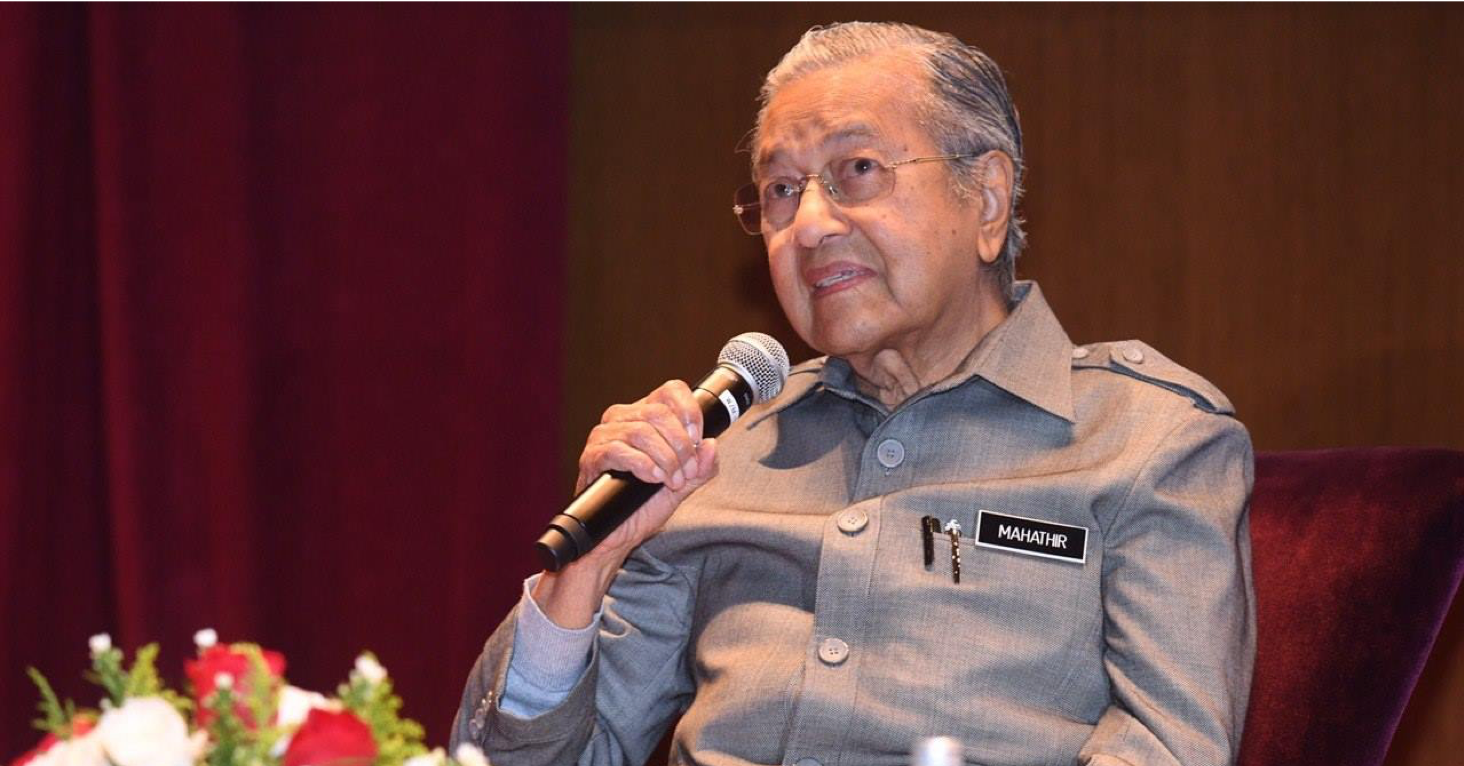Malaysian Prime Minister Mahathir Mohamad and the topic of higher water prices for Singapore are like a never-ending romance drama.
It seems Mahathir will forever pursue the object of his desire, no matter how long it takes.
Singapore rich, other countries poor
On Feb. 28, Mahathir reminded the world once more of the long-running pursuit.
According to Malaysian Insight, during the Johor government retreat in Putrajaya, Mahathir said:
"We need to fight for this. A rich country (Singapore) (cannot be) buying water from poor countries at such an unreasonable price."
Perhaps not noticing the self-own he just committed, Mahathir said that Singapore's growth was fuelled by Malaysian water:
"If we are reasonable, we must say that this payment is unfair. They (Singapore) are growing rapidly because we are supplying them water."
Unreasonable agreement
Mahathir has brought up the issue of the 1962 Water Agreement so many times it's getting a little hard to keep track, but on Feb. 17 in Puchong, Selangor, he said that the agreement that Malaysia signed with Singapore was "unreasonable".
During this government retreat, Mahathir added that Johor could compete with Singapore with its own ports, as it is in an "equally strategic" location.
Mahathir said: "Johor has some advantages and Singapore has some advantages."
The Water Agreement
Singapore pays 3 sen for every 1,000 gallons of raw water, and resells treated water to Johor at 50 sen for every 1,000 gallons.
A Singapore government-produced booklet, “Water Talks in 2003”, explained how Singapore actually absorbs RM1.90 per thousand gallons in cost.
Singapore bears the full cost of treating the water, and other infrastructural costs, building dams and treatment plants, and operating and maintaining the pumps and pipelines.
It had spent S$1 billion on such projects as of 2003, while “Malaysia did not have to spend a cent”.
The government added that the real cost of treating the water is RM2.40 per thousand gallons.
Sovereignty, not just money
While speaking in Parliament in July 2018, Foreign Minister Vivian Balakrishnan emphasised that the 1962 Water Agreement was inextricably linked to the issue of Singapore's sovereignty.
He highlighted that price was not the core issue, but rather the manner in which a review was conducted, with neither side able to unilaterally alter the rules of the Agreement.
He also brought up the fact that Malaysia could have conducted a review in 1987 but chose not to, as they benefited from the pricing agreement.
A six-year negotiation was carried out following the 1997 Asian Financial Crisis, but Malaysia subsequently called it off.
Related stories:
If you like what you read, follow us on Facebook, Instagram, Twitter and Telegram to get the latest updates.
